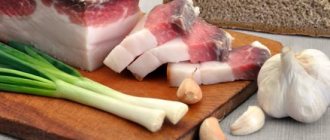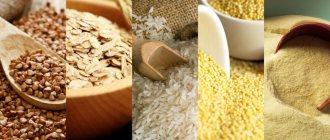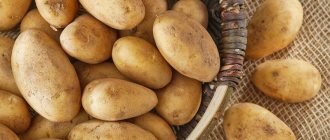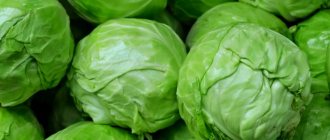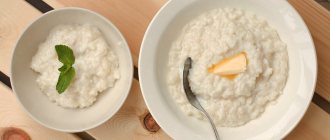A caring mother wants to give her child only the best, so during breastfeeding you need to carefully monitor your own nutrition. The child should receive all the necessary substances with milk, and foods that can harm the fragile health of the baby should be avoided. The mother's diet should be designed in such a way that there is enough energy to maintain her own health and meet the needs of the child. During this period, products are recommended that promote prolonged lactation. Let's figure out what you can eat while breastfeeding and what you can't.
Daily value of nutrients
A woman aged 18 to 29 years should consume approximately 2,200 kcal per day from food. This standard was established by Rospotrebnadzor on December 18, 2008. During lactation, the mother needs additional energy: 500 kcal in the first six months of breastfeeding, 450 kcal starting from the seventh month of lactation.
The main share of nutrients comes from carbohydrates, the need for proteins and fats is much lower. Essential minerals include calcium, phosphorus, magnesium, iodine, iron and zinc. Breastfeeding nutrition should be rich in vitamins A, C, E, PP, D, folic acid and other B vitamins.
Nutrients, vitamins and minerals are included in all foods, but not all of them can be consumed during lactation. Mom should choose only those that do not contain harmful additives and at the same time provide everything the baby needs.
The baby was born: why it is necessary to review the diet
Improper nutrition of the mother can cause exacerbation of colic and anxiety of the baby, sleep disturbances
It's no secret that with mother's milk, the baby receives valuable nutrients necessary for the formation of strong immunity and the full development of the brain, vision, vital organs and systems. Scientists have proven that even if a mother experiences a lack of micro- and macroelements and vitamins, the quality of breast milk remains high and no formula for artificial feeding today can replicate its unique composition. However, with an unbalanced diet of a nursing woman, there is a risk of a decrease in the concentration of nutrients in milk, a decrease in its volume, as well as a deterioration in the well-being of the woman herself caused by nutritional deficiency. Most modern experts agree that a nursing mother does not need a strict diet, but her diet should only contain healthy, hypoallergenic foods rich in vitamins and minerals, protein, fiber and other components. Proper nutrition during lactation is necessary to solve several problems simultaneously:
- providing the baby with the nutrients necessary for its development;
- restoration of figure after childbirth;
- stimulation of lactation;
- reducing the intensity of newborn colic;
- preventing allergic reactions in babies;
- stabilization of the digestive system of mother and baby.
Recommendations for creating a diet
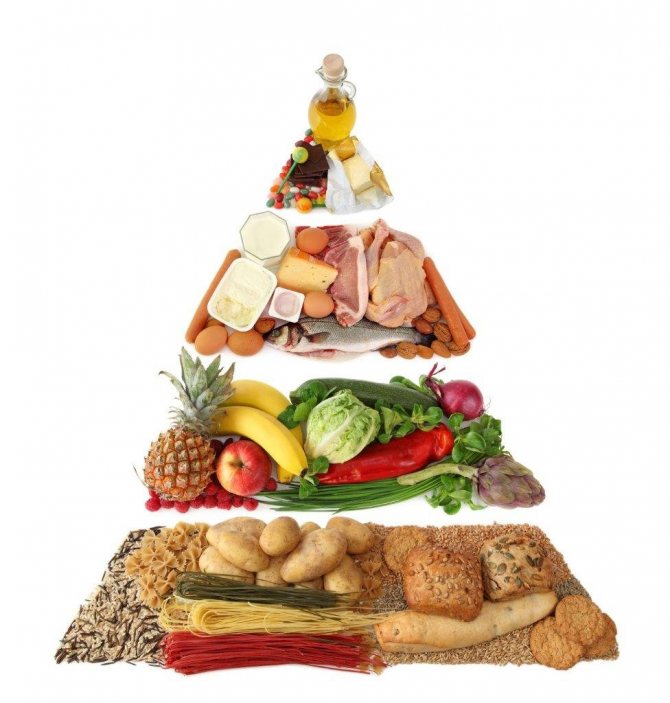
At the base of the food pyramid are grains and cereals, foods rich in carbohydrates, the next in order of importance are vegetables and fruits, then meat, dairy products and fish, at the top are oil and other types of food in small quantities
The mother requires a strict diet in the first weeks of the baby’s life, when his body is just adapting to new conditions of existence outside the womb and is especially sensitive to any changes in the diet. The baby's reaction to each new product on the mother's menu is individual. It is recommended to choose hypoallergenic products that do not cause flatulence, which were constantly present in the woman’s diet before childbirth. From the 2nd month of a child’s life, a woman’s menu becomes more varied, and its “range” gradually expands. 3 months after birth, infant colic, as a rule, recedes, the list of permitted foods increases significantly, however, certain nutritional rules for a nursing mother must be followed throughout the entire period of breastfeeding.
If the mother does eat or drink something from the list of prohibited foods, there is no need to panic or refuse to feed the baby. It is not at all necessary that the child will react negatively to the product, especially if the portion was small. As a rule, food components penetrate into breast milk within 30–60 minutes after entering the mother’s intestines. To minimize risks, if possible, delay the next feeding by 2-3 hours. During this time, the concentration of potentially hazardous substances in breast milk will decrease. If necessary, you can express your breasts, but this will not affect the quality and composition of the milk.
I have been fortunate enough to breastfeed my two children. When my eldest daughter appeared, I didn’t even think about the fact that nutrition needed to be adjusted. I remember how caring relatives brought me pomegranate juice in a glass jar to the maternity hospital, and I drank it without a twinge of conscience. Of course, my newborn baby immediately developed spots of a rash, which I mistook for heat rash. Fortunately, my children are not prone to allergies, so there were no serious problems, despite my maternal illiteracy and lack of nutrition control. The pediatrician and visiting nurse, who came to the house after we were discharged from the maternity hospital, tried to give me recommendations on how to create a diet. By the way, their advice was diametrically opposed. Thus, a qualified pediatrician assured that chicken broth strengthens and you can only eat vegetable soups, and the nurse recommended leaning on the same broth and avoiding chicken meat, which, in her opinion, could cause allergies in the child. In fright, I almost stopped eating, sat on buckwheat and water, occasionally ate marshmallows, washed down with tea, since giving up sweets for me is tantamount to death. This, it seems to me, is where the problems with milk arose; the child did not get enough to eat, so she supplemented with formula. How this happens in other children, I don’t presume to judge, but both of my babies suffered from colic until exactly 3 months, no matter what I ate, and if there was an allergy, it went away quickly and I didn’t have time to find out the reason. When my tummy stopped bothering my daughter, I finally started eating normally, my lactation stabilized, and formula was no longer needed. I approached the birth of my second child already being savvy in many issues related to breastfeeding. I told my relatives that I didn’t need to carry packages: I stocked up on apples and Lenten cookies in advance, and the maternity hospital provided me with 4 meals a day. Then I tried to eat a varied diet, ate healthy foods, and didn’t go hungry. My son was completely on breastfeeding from birth and there was no need to supplement him with formula. Of course, I avoided allergens - chocolate, citrus fruits, fast food and other harmful things. After about 2-3 months, my diet was generally no different from what I ate before giving birth. From my experience, I concluded that it is necessary to limit the consumption of certain foods only in the first months of a child’s life, so as not to provoke colic and avoid the appearance of rashes and skin problems. Of course, you don’t need to indulge in processed foods, sausages and other unhealthy “delicacies”, but if you allow yourself a small amount of them when you really want them, this is unlikely to have a negative impact on your baby. What surprises me is the menu in maternity hospitals. Women in labor in our city are offered the same food as patients in pathology or pregnant women undergoing conservation. Accordingly, the day after giving birth, they brought me cabbage soup made from fresh cabbage. It’s good that there were caring medical staff who delivered a saucepan of chicken broth to the ward. But without a twinge of conscience, I “calmed down” two servings of cottage cheese casserole with raisins. I still remember this casserole with nostalgia, for some reason it seemed somehow special to me, it probably tasted like maternal happiness!
Doctors recommend keeping a food diary, entering information about the mother’s menu and the baby’s possible reactions to new foods - increased colic, increased gas formation, bowel movements, allergic reactions. This will allow you to track the types of food to which the baby reacts negatively and eliminate their consumption for a while. We should not forget about how products affect the woman herself. For example, some types of drinks and food retain fluid in the body, which is undesirable during the period of lactation and can lead to a lack of breast milk.
It is also important to pay attention to the calorie content of a nursing mother’s diet. The opinion that she needs to eat for two is wrong, but the energy value of the daily diet needs to be increased by about 500–600 kcal. The body needs this energy to produce milk and restore strength after childbirth. In addition, the physical activity of a young mother, as a rule, increases compared to the prenatal period. Do not set yourself the goal of quickly losing the weight gained during pregnancy - this can negatively affect the lactation process. If you follow the basic rules for forming a diet for a nursing mother, your body weight will gradually stabilize.
Allowed foods during breastfeeding
Porridge
You can include almost all porridges in your diet: barley, oatmeal, buckwheat, pearl barley, corn and rice. You can cook with water or milk, but it is better to avoid instant cereals. In them, the flakes are processed, which kills vitamins and fiber. In addition, instant cereals often contain harmful additives - flavorings, sweeteners, etc.
Vegetables
A nursing mother needs to eat a lot of vegetables - these are important sources of complex carbohydrates and vitamins. It is recommended to boil, stew, bake, but not fry. When frying, toxins and carcinogens are formed, which reduce immunity and harm the health of mother and baby.
Fruits and berries
A mother's diet while breastfeeding includes approximately 300 g of fruits/berries per day. The healthiest and safest fruits are bananas. They can be eaten raw, but not more than one per day. It is recommended to bake apples after removing the peel. You can also eat dried fruits. Citrus fruits, strawberries, and raspberries should not be eaten: these products are strong allergens. From the fourth month, you can introduce new fruits into the diet every two days and observe how the baby’s body reacts.
Meat and fish
Only lean meat is recommended; any fish can be eaten. You should limit your consumption of tuna and exotic fish (shark, king mackerel, or mackerel). Methods of preparing fish while breastfeeding are only baking and boiling.
Dairy and fermented milk products
The diet for breastfeeding includes kefir, fermented baked milk, cottage cheese, sour cream, cheese, and milk.
Sweet and flour
It is allowed to eat a small amount of confectionery products. You can eat cookies, marmalade, marshmallows without chocolate, marshmallows, crackers, biscuits. But when buying sweets, carefully read their composition and choose only those that do not contain artificial ingredients. Beverages
Proper nutrition while breastfeeding includes some drinks. A nursing mother can drink mineral water without gas, and starting from the second month - weak tea and coffee, compotes and fruit drinks. It is useful to drink special herbal teas that improve lactation. They include lemon balm, nettle, dill, hibiscus, verbena and other herbs.
Eggs
It is recommended to eat half a chicken egg per day. At the same time, monitor the child’s condition, as this product can cause allergic reactions.
Oil
A small amount of butter and sunflower oil is allowed.
Seafood, peas, beans, lentils, nuts and honey can be introduced into the diet six months after birth. From that time on, it was allowed to add herbs and spices to food.
Introduction
Hello, reader! Let's get acquainted.
I am Yulianna Pliskina, expert No. 1 in the Russian media space on healthy lifestyle and wellness coach. I have been working in the healthy lifestyle industry for decades. In my books, blog and articles, I write about what worries me, first of all. How to maintain health and youth for many years with the help of proper nutrition? This topic fascinated me as a student, while studying at the department of sports medicine. I convey my experience in books and at seminars, master classes and lectures, with which I have traveled half the country.
Often at these meetings, women ask me about healthy eating while breastfeeding. This topic is one of the most mythologized; it is stuffed with contradictory information. I was convinced of this from my own experience. As soon as I became a mother, a dense pool of advisors formed around me. Everyone, from the doctor to the neighbor, knew exactly what and how I should eat now. And these opinions often directly excluded each other. Someone happily assured that you can eat everything for two. But another piece of advice was immediately heard - to adhere to a strict diet, because even an innocent carrot can fatally harm the baby. Many of you are in this situation right now, aren't you?
The situation is aggravated by the fact that a young mother has neither the strength nor the time to conduct full-scale research and build a healthy diet. And nutrition really plays an important role in the well-being of both mother and child. Mothers need strength and energy during this difficult, but such an interesting period of life. Babies, along with mother's milk, receive everything they need for growth and proper development. Yes, you can search for information on the Internet, but who can guarantee that it won’t do any harm?
That's why I decided to write a book about nutrition for nursing mothers. With the help of my book, without spending a lot of time, you can build a balanced and healthy diet and create a healthy menu for every day.
What we will discuss in the book:
• We will analyze in detail the myths about nutrition during breastfeeding. You will be fully armed during a conversation on the forum, with your mother or with a doctor.
• Let's define the three main goals of a healthy diet.
• We will create a menu for the first weeks after childbirth.
• Let's talk in detail about preventing food allergies in your baby.
• Let's learn how to choose healthy products, process and store them correctly.
Dear reader! The period of breastfeeding is magical in a woman’s life. I want this time to be entirely yours and your baby's. So that health concerns do not overshadow this joy. Establishing proper nutrition is not at all difficult if you have clear guidelines and simple and tasty recipes. I hope my book will be useful to you!
Your Yulianna Pliskina!
pliskina.com
Prohibited foods during breastfeeding
The following should be excluded from the diet of a nursing mother:
- alcohol; – semi-finished products; - carbonated drinks; – freeze-dried coffee and cheap tea bags; – chocolate; – confectionery products with dyes; – all products with preservatives; – spicy vegetables and seasonings: pepper, garlic, onion, radish, radish, etc. – smoked meats; – lard and fatty meat; – sauerkraut; – sausages; – fermented cheeses: Dutch, Parmesan, Brie, Roquefort, etc. (on the packaging of such cheeses it is written “fermented”, “aged” or “rennet”); – exotic fruits: mango, papaya, passion fruit, etc.
A mother's nutrition during breastfeeding should be tailored to her individual characteristics. Monitor the reaction of your own body and the baby’s body. Even the healthiest foods can be poorly digested and cause allergies; based on this, the diet will be adjusted. Do not forget that in the first months of life the baby is still adapting to a new type of nutrition; its stomach and intestines are not sufficiently developed. You can eat healthy, but your baby will have colic and other tummy problems. Don't be alarmed by natural reactions: as a rule, they go away after three months.
Nutrition rules for a nursing mother

The older the child gets, the more varied the nursing mother’s menu can be.
Recommendations for shaping the diet of a nursing mother are often contradictory. On the one hand, it is necessary to ensure balance and variety when compiling the menu. On the other hand, many healthy foods can cause colic or allergies in the baby and are undesirable to consume. It is possible to satisfy both of these requirements by following the principles of nutrition during breastfeeding:
- You need to try new products one by one, at different time periods. This will allow you to detect a child’s negative reaction to a specific type of food and henceforth exclude it from the menu. Hence the consequence is to practice separate meals in the first month, gradually switching to multi-component dishes.
- It is necessary to monitor the reaction to the new product for 2-3 days. Try a small amount for the first time, and if everything is fine with the baby, increase the portion every day.
- Eat small meals. To avoid overloading your digestive system, increase the frequency of meals to 5-6 times a day. Of these, there should be 3 main meals and 2-3 snacks.
- Follow your diet. This applies to both mother’s nutrition and the frequency of breastfeeding of the baby.
- Prepare food in gentle ways. It is not advisable to fry or deep-fry foods. Such methods of preparing dishes negatively affect their usefulness and complicate the digestion process.
- Eat a varied diet. There is no need to deny yourself the desired dishes, just find a worthy alternative to them. For example, replace the mayonnaise in the Olivier salad with yogurt or sour cream, and the sausage with boiled chicken breast. Then your favorite snack will benefit both you and your baby.
- Eat permitted sweets. Many nursing mothers cannot do without sweets; giving up sweets and cakes becomes a real challenge for them. Choose treats that won't harm your baby and eat in moderation. For example, marmalade, marshmallows, and dried fruits will help satisfy your sweet tooth.
Feedback from nursing mothers
In the first 3 weeks, lactation is just establishing…. When I fed my son only boiled vegetables and ate meat... for the rest there was a terrible rash... there are no such problems with my daughter
Olga
https://deti.mail.ru/forum/nashi_deti/kormim_grudju/pitanie_kormjashhej_mamy_1373018229/
I eat everything. :) I don’t deny myself anything at all. I recently ate strawberries and tangerines, and they went... So try everything slowly.
Yummy
https://deti.mail.ru/forum/nashi_deti/kormim_grudju/pitanie_kormjashhej_mamy_1373018229/
At first I also followed a diet: in the morning oatmeal without milk + Nesquik cocoa (one spoon per cup of water and 4 oatmeal cookies, after 2 hours a banana, lunch simple beef soup with sour cream and bread, afternoon snack a pack of cottage cheese with sour cream, in the evening vegetable stew (broccole. zucchini, carrots, onions, and in between I drank water from the barrier, now I already eat everything except semi-finished foods. Strawberries and cherries and black currants and fried potatoes, and recently I couldn’t resist and ate nuggets from McDonald’s and everything is ok. Where am I- I read that you need everything you need to eat for your body to get used to allergens.
Marina under an umbrella
https://deti.mail.ru/forum/nashi_deti/kormim_grudju/pitanie_kormjashhej_mamy_1373018229/
I only ate oatmeal with sour milk, because my daughter was allergic to everything else.
Fox
https://deti.mail.ru/forum/nashi_deti/kormim_grudju/chto_mozhno_kushat_kormjashhej_mame/
I ate cottage cheese, chicken, broth, potatoes. tea with milk. everything... I dreamed about food
Svetlana
https://deti.mail.ru/forum/nashi_deti/kormim_grudju/chto_mozhno_kushat_kormjashhej_mame/
But here we have the opposite - in the maternity hospital we fed plums, pea soup, and even herring with onions





